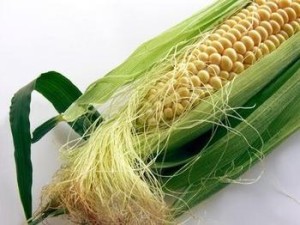Contents
Uses
- Bedwetting.
- Bladder infections.
- Inflammation of the prostate.
- Inflammation of the urinary system.
- Kidney stones.
- Congestive heart failure.
- Diabetes.
- Fatigue.
- High blood pressure.
- High cholesterol levels.
Benefits
- Urinary Tract TreatmentThe cornsilk herb is a soothing diuretic that can benefit the urinary tract in numerous ways. It can be given to children as a method of treating enuresis–more commonly known as bed wetting.
- It is also a common alternative to antibiotics when treating a urinary infection resulting from bacteria. Excessive use of antibacterial medications can lead to bacterial resistance to these medications, and complications can arise in children who take pharmaceutical medications.
- Cornsilk consumption also helps treat inflammation in the bladder or urethra. Cornsilk is usually taken by steeping 2 tsp. of the herb in boiling water for 10 to 15 minutes. You can drink this tea up to three times daily. Cornsilk tinctures are an alternative–3 to 6 ml of tincture should be taken three times daily.
- Kidney and Circulation
Cornsilk is sometimes used to treat and prevent the development of kidney stones in adults. Infections of the kidney can also be treated by taking cornsilk daily. Because of its affect on the kidneys, research indicates that the herb can help lower high blood pressure in the circulatory system.
Cautions
- Corn silk seems to be safe for most people.
- Pregnancy and breast-feeding: Corn silk is safe for pregnant women when used in the amounts normally found in food. But larger amounts are unsafe, because corn silk might stimulate the uterus and cause a miscarriage. It is best to stick to food amounts of corn silk if you are pregnant or breast-feeding.
- Diabetes: There is some concern that large amount of corn silk might lower blood sugar. This could interfere with blood sugar control in people who have diabetes.
- High blood pressure or low blood pressure: Large amounts of corn silk might interfere with control of these conditions.
- Blood levels of potassium that are too low: Large amounts of corn silk might make these conditions worse.
- Corn allergy: Applying lotions that contain corn silk might cause a rash, red skin, and itchiness if you are allergic to corn silk, corn pollen, or cornstarch.
Interactions
- Medications for diabetes interacts with CORN SILK
Corn silk might decrease blood sugar. Diabetes medications are also used to lower blood sugar. Taking corn silk along with diabetes medications might cause your blood sugar to go too low. Monitor your blood sugar closely. The dose of your diabetes medication might need to be changed. - Medications for high blood pressure interacts with CORN SILK
Large amounts of corn silk seem to decrease blood pressure. Taking corn silk along with medications for high blood pressure might cause your blood pressure to go too low. - Medications for inflammation interacts with CORN SILK
Some medications for inflammation can decrease potassium in the body. Corn silk might also decrease potassium in the body. Taking corn silk along with some medications for inflammation might decrease potassium in the body too much. - Warfarin (Coumadin) interacts with CORN SILK
Corn silk contains large amounts of vitamin K. Vitamin K is used by the body to help blood clot. Warfarin (Coumadin) is used to slow blood clotting. By helping the blood clot, corn silk might decrease the effectiveness of warfarin (Coumadin). Be sure to have your blood checked regularly. The dose of your warfarin (Coumadin) might need to be changed. - Water pills (Diuretic drugs) interacts with CORN SILK
Corn silk seems to work like “water pills.” Corn silk and “water pills” might cause the body to get rid of potassium along with water. Taking corn silk along with “water pills” might decrease potassium in the body too much.
Other Names
Barbe de Maïs, Blé d’Inde, Cheveux de Maïs, Indian Corn, Maidis Stigma, Maïs Violet, Maize Silk, Purple Corn, Seda de Maíz, Soie de Maïs, Stigma Maydis, Yu Mi Xiu, Zea, Zea mays
References
Source: WebMD, http://www.webmd.com/vitamins-supplements/ingredientmono-140-corn%20silk.aspx?activeingredientid=140&activeingredientname=corn%20silk
Live Strong, http://www.livestrong.com/article/111684-benefits-cornsilk/

